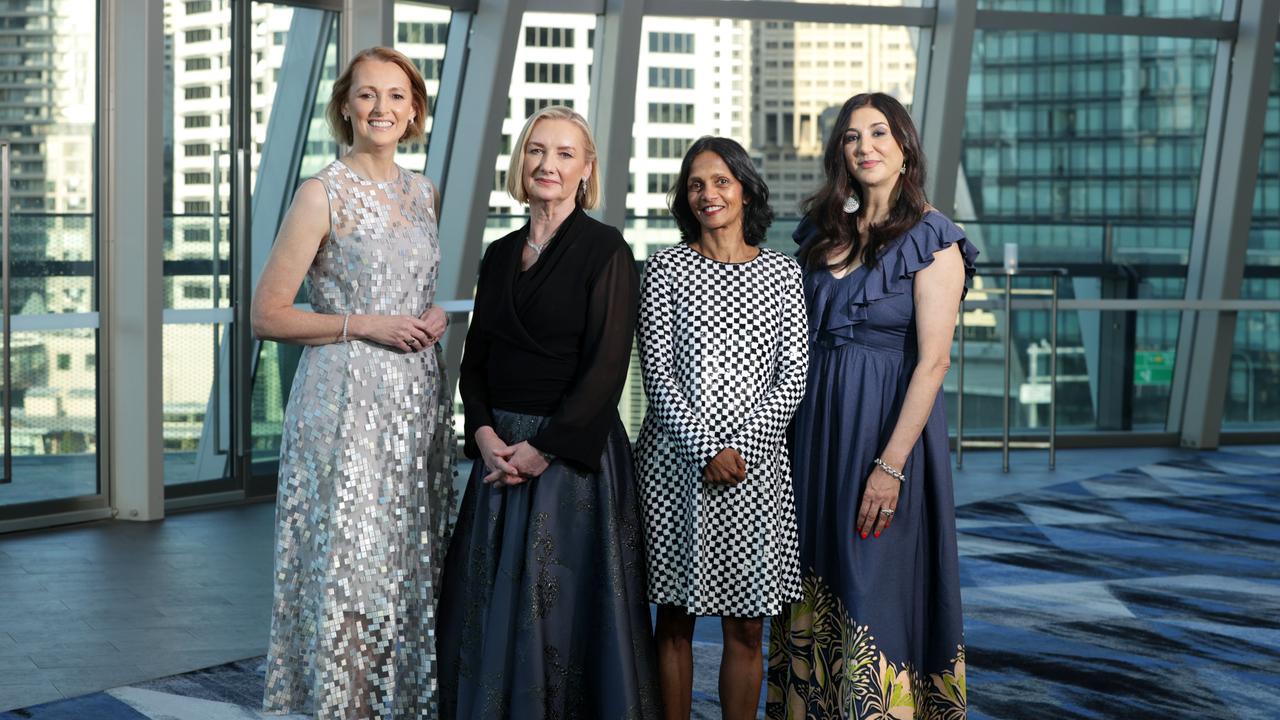Behind Philip Lowe’s carefully collaborated next step
It is hoped the former central banker’s substantial star power can be used to raise the profile of the fund manager which has a charitable twist.
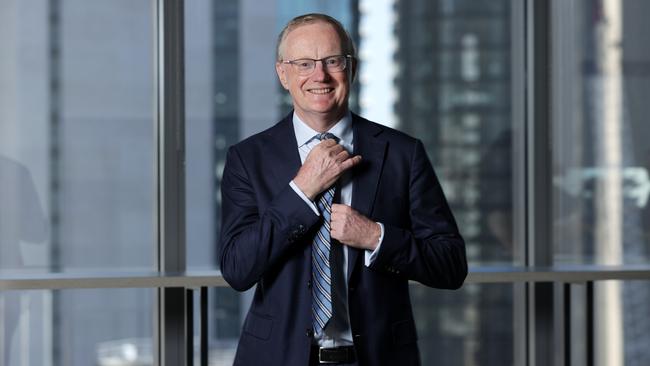
Business
Don't miss out on the headlines from Business. Followed categories will be added to My News.
Even in retirement, central bank governors carry a big stick.
And as they build a career outside the protected world of the Reserve Bank they need to chose wisely. This is partly to protect the long-term reputation of the bank while building their own identity beyond making interest rate calls.
Philip Lowe, who arguably had the toughest exit from the central bank than any governor before him, has now taken his first step.
He’s moved into funds management – with a big social impact twist. From May, Lowe becomes the chair of the listed Future Generation Australia fund.
After being forced out of the RBA by Treasurer Jim Chalmers last September, Lowe had been trying to keep out of the spotlight, spending time at home or working on his handicap on Sydney’s golf courses.
He did the occasional speech on the international circuit – including for the Hong Kong Monetary Authority – and was sought after from global central banks such as Germany and France for insights into Australia’s economic recovery post the pandemic.
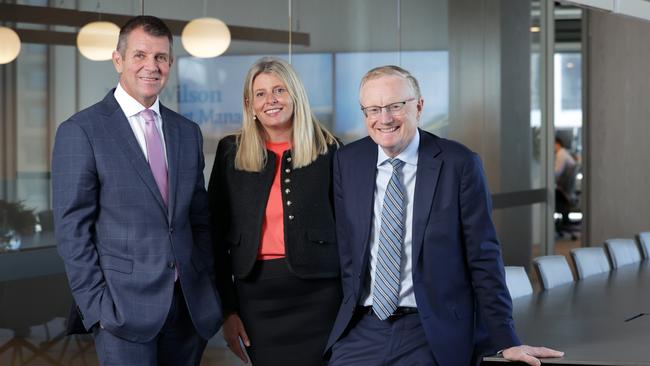
A call earlier this year from the Caroline Gurney, the chief executive of the $1bn Future Generation, about coming in for an in-house lunch with her fund managers, resulted in the conversation soon turning to a bigger role at the fund.
Future Generation’s current chairman, Mike Baird, was then brought in to seal the deal to bring Lowe on as his replacement. However, the former central banker had already made up his mind.
“When Caroline called me up, she didn’t have to twist my arm,” Lowe says.
Baird, the former NSW premier, will step down from the chairman role in May to free up his schedule after being named chair of Cricket Australia, but he intends to stay on the board. Baird reckons Lowe and the fund are a “match made in heaven”.
“To me, this is an incredible appointment. Someone who’s got unbelievable experience, but a real heart for what we are trying to do – have an impact on kids across the country,” Baird says.
Indeed, it is hoped that Lowe’s substantial star power can be used to raise the profile of Future Generation Australia and its sister fund, Future Generation Global (Lowe’s role extends to the Australian fund). The two listed funds are founded by Geoff Wilson of Wilson Asset Management and have a combined $1bn in assets.
Further growth in funds under management gives it more clout, narrows the discount of net tangible assets, but also grows the dollar donations to charity.
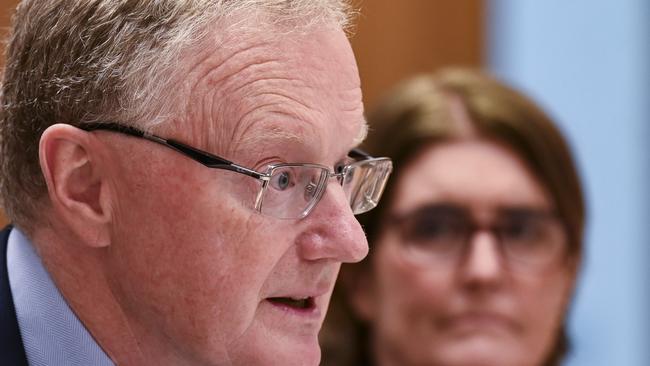
The model is designed for investors to buy into a listed investment company and get a stream of dividends. The funds are managed by the nation’s top stock pickers who donate their services and every year 1 per cent of the net tangible assets is donated to programs helping children at risk and youth mental health.
So far more than $75m has been donated, and the aim is to build this up to $100m by the end of the decade. But the fund needs to generate more liquidity for it to be sustainable.
Former central banker Bernie Fraser was instrumental in helping get industry funds off the ground in the 1990s. Lowe’s predecessor, Glenn Stevens, was an adviser to fund manager Ellerston and the NSW government’s Generations Fund before becoming chairman of Macquarie Group.
Lowe, like the fund’s other directors, will do the job on a pro bono basis. The former central bank governor will chair a board that includes some of the nation’s best-connected stock pickers, including Wilson, David Paradice and Gabriel Radzyminski.
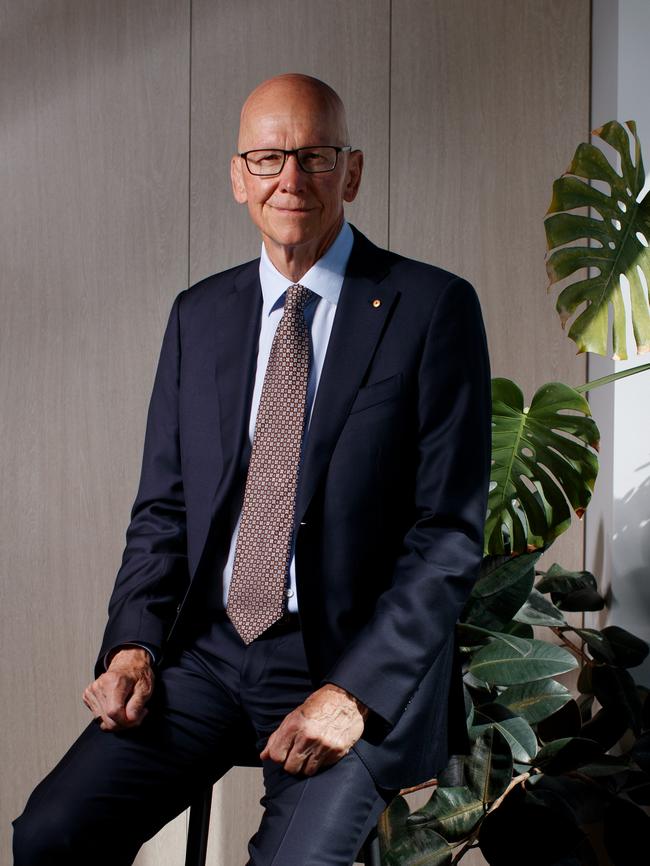
Lowe recalls being immediately taken by the Future Generations model when he was invited to speak at a lunch for the fund about five years ago.
“It brought together two of my great passions, finance and helping kids. And this is a model which gives so ordinary mum-and-dad investors access to really first-rate fund managers,” he says.
Even with the new direction, the events of the past year are still clearly raw for Lowe. The central banker regularly had camera crews out the front of his house and was coming under intense scrutiny as he was raising interest rates. It came as the central bank was being probed by a landmark central bank review, while Canberra was running a public process for Lowe’s replacement.
Lowe acknowledged it was a “pretty torrid time” but feels good about his first move, with more roles likely to come.
Lowe continues to follow the data and says new governor Michele Bullock made the right call in her February monetary statement by calling out a risk to interest rates rising again, if inflation doesn’t return to target.
“I learned there was a lot of uncertainty in the world and things can often turn out different to what you expect,” Lowe says
“So the bank was right to remind us that there’s still a two-way risk on interest rates in Australia even though markets are pricing cuts.”
–
Holgate’s mission to change trucking
Christine Holgate offered a glimpse into her first day with Team Global Express – the trucking major that used to be known as Toll Express – when she took charge Two-and-a-half years ago. She organised a meet and greet with the top 75 leaders.
“I was the only female” Holgate recalls.
“So there’s a whole idea that ESG clearly had a long way to go,” she says in reference to the trucking company’s environment, social and governance settings.
The former Australia Post boss was speaking on Tuesday at a conference organised by Commonwealth Bank’s institutional arm. The bank counts Team Global Express as a client and it’s helping to fund its investments around sustainability.
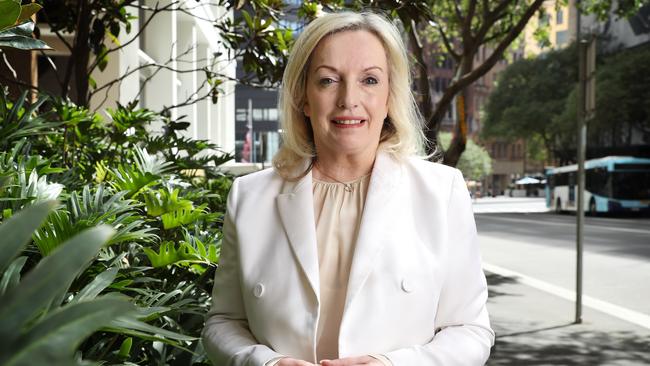
Holgate says sustainability needed to be built into the 130-year-old business from the ground up as part of a broader platform to change.
“We were a business that was five years in decline, haemorrhaging cash, labour turnover of 37 per cent, net promoter score of minus 52,” she says.
The trucking business, owned by private equity firm Allegro, had also been gripped by strikes, and there was the overwhelmingly male-dominated workforce.
“We started by listening to our people and to our customers about what was important to them. And then we decided what was our biggest threat facing us as a company,” Holgate says.
One of these was a chronic shortage of truck drivers. And as the nation’s biggest transport operator, carbon emissions are a challenge as it attempts to drive a path to net-zero.
“Even though we weren’t making money, we put in place the things that were necessary,” Holgate says.
This involved working with unions to improve employee benefits and also tackling some of the barriers to getting more women in the workplace. Now 50 per cent of Team Global Express’ executive team is women, and it is the only large transport company in the world to have women in the role of CEO and chief operating officer.
“By the way, everyone got their job on merit, not because of quotas,” she says.
Also the former CEO of Blackmores, Holgate came under the spotlight when she was forced out of the top Australia Post by former prime minister Scott Morrison after she bought luxury watches as bonuses for four managers. The purchases had been disclosed to the board.
The journey for Team Global Express is from over, she says, particularly around cutting emissions.
A trial is under way with truck maker Volvo which involves more than 50 electric trucks, although it is still very early days. There isn’t the charging infrastructure in place and distance is variable depending on weather and cargo weight.
But progress is being made. Over the past few years revenue is up by $750m, staff turnover rates are down to 16 per cent while the net promoter score used as a barometer for customer satisfaction has jumped to 60 points.
The changes were also about giving Team Global Express a broader purpose, Holgate says. And this means customers were able come along for the journey.
johnstone@theaustralian.com.au
Originally published as Behind Philip Lowe’s carefully collaborated next step



